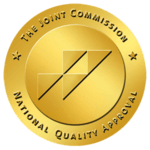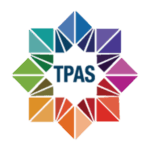At Redpoint, we want the teenagers in our care to thrive and explore. Our Teen Intensive Outpatient Program (Teen IOP) is designed to enable young people and their families to live, enjoy and improve their lives at the same time. Teen IOP focuses on family involvement and family therapy to address problematic dynamics and support parents. Our program is an intensive, part-time program that is built specifically to meet the needs of those aged 13-18.
Teen Substance Addiction
Drug and alcohol abuse is a long-term, debilitating mental illness known as addiction. For teenagers, trying drugs or drinking may seem fun or rebellious, but without the proper education regarding such substances, there are debilitating consequences. Many teenagers don’t realize they are at risk for addiction based on trauma, mental illness, or family history, but substance use can become serious and require intervention.
According to the Centers for Disease Control and Prevention (CDC), teen substance use can:
- Impact on teenagers’ brain development and growth
- Lead to other risky behaviors like having unprotected sex or driving under the influence
- Risk future physical and mental health issues like high blood pressure, heart disease, liver disease, sleep disorders, depression, anxiety, psychosis, and other mood disorders
Changes in Mental Health
It might be difficult to know whether a teen’s unusual conduct is just a normal part of adolescence or a sign of a more serious health issue or substance use disorder (SUD). When a young person’s everyday life is disrupted by behavioral problems, a parent or guardian should seek the advice of a health care expert. For adolescents and teenagers, a number of alterations in mood or behavior may indicate a shift in mental health or substance abuse issues, such as:
- Losing interest in things that they used to enjoy
- Having low energy
- Sleeping too much or too little, or seeming sleepy throughout the day
- Spending more and more time alone, avoiding social activities with friends or family
- Dieting or exercising excessively, or fear of gaining weight
- Engaging in self-harming behaviors (such as cutting or burning their skin), smoking, drinking alcohol, or using drugs
- Engaging in risky or destructive behaviors alone or with friends
- Having thoughts of suicide
- Having periods of highly elevated energy and activity and requiring much less sleep than usual
- Saying that they think someone is trying to control their mind or that they hear things that other people cannot hear
The Advantages of Teen IOP
If you have a teenager struggling with mental illness or substance use, our Teen IOP may be the answer for them. Most teenagers are unable to relocate to an inpatient rehabilitation center due to family commitments or schooling. Our Teen IOP offers all the advantages of focused care and customized treatment while allowing clients to continue focusing on academics or other commitments.
Here, at Redpoint, our Teen IOP was created to focus on the challenges young men and women face. Our offerings are uniquely customized and tailored for the needs of adolescents. We educate our clients on their strengths, trauma, family systems, depression, resiliency, wellness, and communication. Through these focuses, we use dialectical behavior therapy (DBT) skills like mindfulness, distress tolerance, emotional regulation, and interpersonal effectiveness.
Each teenager in our care receives a personalized treatment plan which uses their unique abilities to guide activities, support groups, and resources that will work for them. We have a highly trained clinical team on staff to emphasize recovery skills and address trauma through multiple therapeutic interventions that will lead to lasting change. The following are some advantages of IOP:
Flexible Schedule
Redpoint’s Teen IOP is scheduled following school, from 4-6 pm (summer hours may vary), three times a week. Redpoint supports teen clients to have a balance between social life responsibilities and treatment. Here, teens are able to get the best individualized, group, and family therapy without interrupting their busy lives.
Family
Mental health issues and SUD often affect clients and their loved ones alike. Family therapy is an essential aspect of clients’ recovery at Redpoint. One of our primary missions is to bring the client and their support system together. To resolve or prevent possible adverse outcomes of teenage substance use, it is vital that parents or guardians take on an advocating role for their child’s well-being. We encourage the family to become part of the healing process – for the benefit of the client and their family. This approach allows families to work together as a healthy unit – everyone on the same page with accountability, expectations, respect, and mutual support.
Supporting Healthy Growth
Our professionals provide therapy that will focus on traditional modalities, problem-solving, coaching, and mentorship while helping young people find their purpose in life at a critical age and cultivate imperative life skills for future success. These methods will teach responsibility, balance, and time management to prepare teens for life outside of Redpoint and for their future.
Real-World Applications
Teen IOP helps clients apply the lessons learned at Redpoint to their daily lives. It may be difficult for people to transition from treatment to the real world, but Redpoint’s IOP enables clients to take home the skills they gained from both group and individual therapies and put them into practice. We value methods like experiential therapy and trauma work that can truly help change lives with a new perspective and life skills.
Community
IOP participants meet peers and sponsors who are going through similar struggles and journeys. This supportive community can provide resources and strength for those working to overcome addiction and mental health issues. Teens are at a vulnerable age when they need community support to heal and feel validated in their experiences. Having that support system of peers allows teens to feel less isolated and alone.
Appreciating Needs
It is crucial for teenagers to understand that recovery is not an end to their social life, which is often a fear for those who dearly value it. Through treatment, teens can see how recovery drastically improves their lives.












